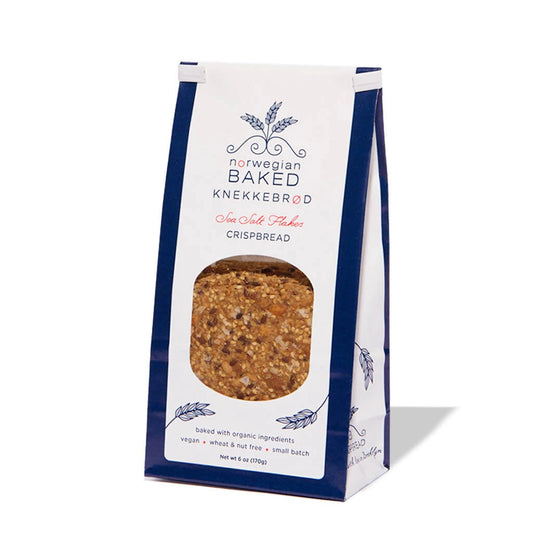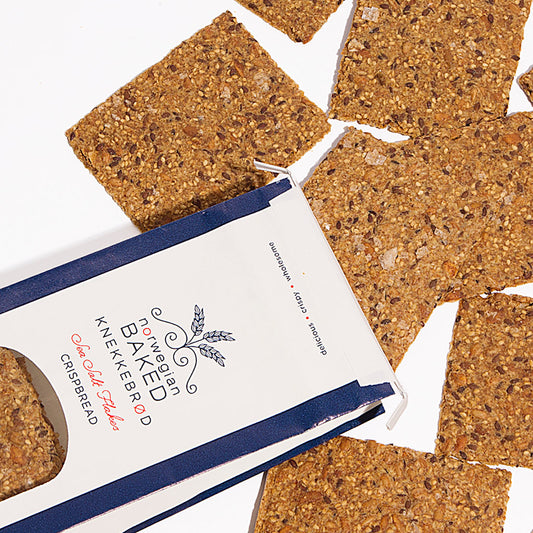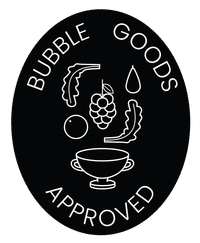👁 Contents
Frequently Asked Questions
1. What is the history of sourdough bread?
2. Why is sourdough bread significant in ancient civilizations?
3. How did sourdough become popular in America during the Gold Rush?
4. What are the health benefits of sourdough bread?
5. Can I make vegan sourdough bread at home?
Sourdough bread has a rich and fascinating history that spans thousands of years and various cultures across the globe. This beloved staple has evolved from simple beginnings to become a favored choice for many, especially those who enjoy its unique flavor and crusty texture. As trends like homemade baking take over kitchens, understanding the history behind sourdough can deepen your appreciation for this ancient craft. Join us as we explore the origins and evolution of sourdough bread, and discover how it fits perfectly into the modern culinary scene, especially for those seeking vegan English muffins.
The Origins of Sourdough Bread
The story of sourdough bread is believed to date back to ancient Egypt around 1500 BC. The natural fermentation process that defines sourdough was likely discovered when a mixture of flour and water was left out, allowing wild yeast and bacteria to thrive. This unintentional fermentation led to the creation of the first leavened bread, which was softer and more flavorful than its flatbread predecessors.
As the technique spread through trade and exploration, different cultures began to adopt and adapt the sourdough method, tailoring it to their local grains and tastes. Sourdough became a staple in many households, especially among the artisan bakers who prized the ability to create a diverse range of breads with unique flavors.
Sourdough in Ancient Civilizations
In ancient Rome, sourdough was not only a popular dietary staple but also a symbol of social status. The Romans refined their baking skills, introducing wooden bread ovens that allowed for uniform heating, which was pivotal for baking good bread.
Meanwhile, in the Asian landscape, sourdough made its way through the Middle East and into places like India, where it took the form of various traditional breads like naan and roti. The fermentation process was embraced by local artisans, each adding their unique twist to the sourdough tradition.
The Bread of the Gold Rush: Sourdough in America
The history of sourdough took a significant turn with the California Gold Rush in the mid-19th century. Miners relied on sourdough for sustenance, as it could be made from easily transportable ingredients and had a longer shelf life compared to other breads. The prospectors would often carry sourdough starter with them, leading them to proudly adopt the moniker "sourdough" as an identifier.
This tradition continued to flourish in San Francisco, where the moist coastal air provided the ideal environment for sourdough cultures to thrive. San Francisco sourdough became a cultural icon, characterized by a tangy flavor and chewy crust that remains sought after today.
International Variations of Sourdough
As sourdough traveled the world, various regions began to develop their interpretations of the bread, each displaying unique characteristics:
- Germany: Known for its dense, dark Rye sourdough, Germany adapted its bread-making techniques to suit the local rye grain. The hearty flavor and nutritional density made it a staple.
- France: A country synonymous with bread-making, France embraced sourdough in the form of "pain au levain," created with a long fermentation process that grants its distinctive crust and complex flavor.
- Italy: In Italy, sourdough is celebrated in the form of "pane casereccio," a rustic sourdough that captures regional flavors from different provinces.
- Australia: Here, sourdough gained popularity as part of the burgeoning artisan baking movement, creating a vibrant culture around traditional techniques and local ingredients.
The Modern Revival of Sourdough
In recent years, sourdough bread has experienced a massive revival among both amateur and professional bakers. Fueled by the homemade baking trend, people are returning to the kitchen to rediscover the joys of crafting their bread from scratch. The rise in sourdough’s popularity is rooted in its health benefits, flavor profile, and the simplicity of homemade preparation. As individuals explore vegan English muffins and sourdough options, they often find ways to incorporate a wider range of dietary preferences.
Amidst the accessibility of online resources and social media, many home bakers are sharing tips, techniques, and starter cultures with one another. This sense of community has not only revived interest in sourdough bread but has also led to an increase in appreciation for traditional baking methods and the artistry involved.
Health Benefits of Sourdough
Sourdough is celebrated not just for its delightful taste but also its nutritional benefits. The fermentation process used in sourdough offers several advantages:
- Improved digestibility: The natural acids in sourdough help break down gluten and phytic acid, making nutrients more accessible.
- Lower glycemic index: Sourdough bread tends to have a lower glycemic index compared to commercially produced white bread, making it a better choice for those managing blood sugar levels.
- Vitamins and minerals: The fermentation process increases the bioavailability of vitamins and minerals, including B vitamins and minerals like iron and zinc.
Mastering Your Own Sourdough at Home
If you're inspired to embark on your sourdough journey, there’s nothing stopping you! Making sourdough at home is not just rewarding but also a fantastic way to impress friends and family. Here’s a beginner’s guide to get you started:
Get Your Starter Ready
Creating a sourdough starter begins with a mix of flour and water. This live culture will grow over time, developing the wild yeast and lactic acid bacteria needed to leaven your bread. Once your starter is active, you can easily maintain it with regular feedings of flour and water.
Crafting Your Sourdough Bread
The key steps to making homemade sourdough include:
- Mixing: Combine your starter with flour, water, and salt to form a dough.
- Autolyse: Allow the flour and water to rest before adding salt. This technique enhances the dough's texture.
- Bulk Fermentation: Let the dough rest, enabling it to rise and develop flavor. Stretch and fold the dough periodically to promote gluten development.
- Shaping: Shape your dough into a loaf or round, and let it rise again before baking.
- Baking: Use a preheated oven with steam to achieve that perfect crust. A Dutch oven can be an excellent tool for home bakers!
Make It Vegan!
For those looking to enjoy sourdough in a plant-based way, transforming traditional recipes to fit vegan diets is simple. Substitute any dairy ingredients with plant-based alternatives, and enjoy your beautiful loaf without compromising dietary preferences or values. Whether you're inspired to create vegan English muffins or explore diverse sourdough variations, there are endless possibilities that promote inclusivity in baking.
The Future of Sourdough Baking
As we continue to explore the world of sourdough bread, its history serves as a reminder of how food connects us to our past and influences our present culinary experiences. While artisan bakers keep the tradition alive, home bakers are finding delight in the transformation of their kitchens into bread-making havens.
Through the art of homemade sourdough, the community spirit flourishes around kitchen counters filled with flour, water, and creativity. Sourdough transcends mere nourishment; it embraces culture, history, and a shared love for quality ingredients and craftsmanship. So why not spend some time in your kitchen, experiment, and discover the magic of sourdough for yourself?
Get Ready to Bake!
We hope this exploration into the history of sourdough has ignited your passion for baking and inspired you to try your hand at creating your own delicious loaves. Take a walk through the rich tapestry of traditions and cultures that sourdough bread brings, and become an active participant in this timeless journey!














